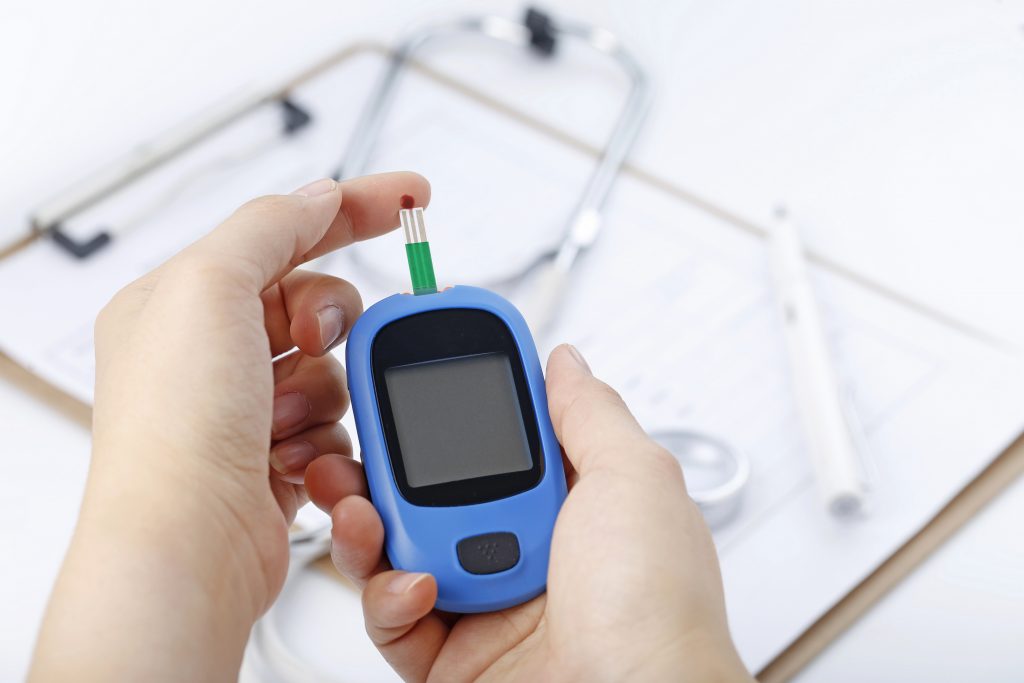A metabolic disorder with heterogenous etiologies which is characterized by chronic hyperglycemia and disturbances of carbohydrate, fat and protein metabolism resulting from defects in insulin secretion, insulin action or both. (ICD-11)
Diabetes is a chronic, metabolic disease characterized by elevated levels of blood glucose (or blood sugar), which leads over time to serious damage to the heart, blood vessels, eyes, kidneys, and nerves. (WHO)
According to ADA, Diabetes can be classified into the following general categories:
- Type 1 diabetes
- Due to autoimmune β-cell destruction, usually leading to absolute insulin deficiency)
- Type 2 diabetes
- Due to a progressive loss of adequate β-cell insulin secretion frequently on the background of insulin resistance)
- Gestational diabetes mellitus
- Diagnosed in the second or third trimester of pregnancy that was not clearly overt diabetes prior to gestation
- Specific types of diabetes due to other causes
- Monogenic diabetes syndromes
- Diseases of the exocrine pancreas
- Drug -or chemical-induced diabetes
Signs / Symptoms
What's common signs of diabetes?
The main symptoms of diabetes;
- Going to the toilet a lot, especially at night
- Thirsty
- More tired than past
- Unintentional weight loss
- Genital itching or thrush
- Slowly healing cuts and wounds
- Blurred vision
Common causes
What's common causes of diabetes?
It is caused by problems that associated with insulin. Insulin regulate the blood glucose for taking to cells. If have less/no insulin, glucose stays in the blood. The body tries to reduce blood glucose levels by urination. High levels of glucose being passed in the urine are a perfect breeding ground for the fungal infection which causes thrush.
Departments & Emergency
If have one or more signs/symptoms it is recommended a visit for General Practitioner near days. Also can visit Internal Medicine or Endocrinology specialist in an appropriate time.
Also, you can evaluate your risk for Type 2 DM from https://www.diabetes.org/risk-test
Diagnosis
A1C
Measures average blood sugar for the past two to three months. In this test no necessary to fast or drink anything.
Fasting Plasma Glucose (FPG)
Checks your fasting blood sugar levels. Necessary to not eat or drink (except water) for at least 8 hours before the test. This test is usually done first thing in the morning, before breakfast.
Oral Glucose Tolerance Test (OGTT)
It is based on checking blood sugar levels before drink a special sweet drink and. two hours later. It is about whether body processes sugar regularly.
Random (also called Casual) Plasma Glucose Test
Blood sugar check at any time of the day.
Treatment
Obesity Management can delay the progression from prediabetes to type 2 diabetes and is beneficial in the treatment of type 2 diabetes.
- Lifestyle Interventions
- Diet
- Physical activity
- Behavioral therapy
- Glucose-Lowering Therapy
- Approved Weight-Loss Medications
- Medical Devices for Weight Loss
- Bariatric Surgery
FAQ
What is Diabetes?
Diabetes is a disease that occurs when your blood glucose, also called blood sugar, is too high. Blood glucose is your main source of energy and comes from the food you eat.
Who is more likely to develop type 2 diabetes?
You are more likely to develop type 2 diabetes if you are age 45 or older, have a family history of diabetes, or are overweight. Physical inactivity, race, and certain health problems such as high blood pressure also affect your chance of developing type 2 diabetes.
What health problems can people with diabetes develop?
Over time, high blood glucose leads to problems such as
- Heart disease
- Kidney disease
- Eye problems
- Dental disease
- Nerve damage
- Foot problems




Pingback: Gastroesophageal Reflux Disease (GERD) - Yesil Health